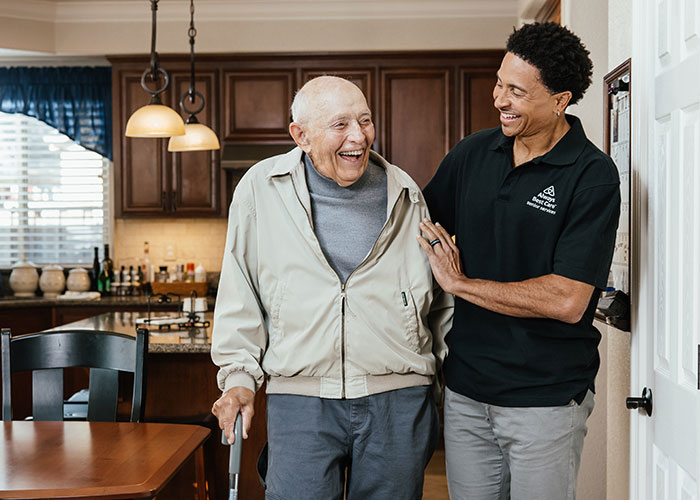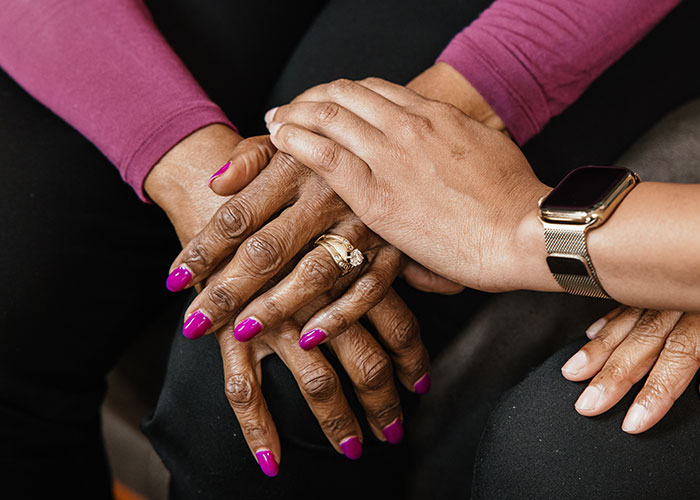Talking to Your Loved One About Hearing Loss: A Compassionate Approach

Hearing loss is a common part of aging, but it can still be a sensitive subject for many older adults. If you’ve noticed that your senior loved one is asking people to repeat themselves more often, turning the television up louder than usual, or withdrawing from conversations, it might be time to talk about their hearing health.
Bringing up the topic of hearing loss can be challenging. Your loved one may feel embarrassed, defensive, or fearful of what it could mean for their independence. However, with patience and empathy, you can help them see that addressing hearing issues can greatly improve their quality of life.
Recognizing the Signs of Hearing Loss
It’s not always easy to tell when hearing is becoming a problem. Some signs may be subtle at first or mistaken for forgetfulness or confusion. Common indicators include:
- Difficulty following conversations, especially in group settings
- Asking people to speak louder or repeat themselves
- Turning up the volume on the TV or radio
- Complaining that others are mumbling
- Withdrawing from social activities or seeming disinterested in conversation
- Responding inappropriately due to mishearing
If you’ve noticed one or more of these signs, it may be time to gently open the door to conversation. Contact us at Always Best Care if you need assistance.
Approaching the Topic with Care
When starting the conversation, timing and tone matter. Choose a quiet, relaxed moment when you won’t be interrupted. Avoid bringing it up in frustration or during a miscommunication. Your goal is to show concern and support—not to criticize.
Use “I” statements to express your observations. For example:
- “I’ve noticed you’ve been having a harder time hearing during our phone calls lately.”
- “I worry that you’re missing out on conversations because it’s harder for you to hear in noisy places.”
Reassure your loved one that hearing loss is common and treatable. Framing the conversation around their well-being—rather than focusing on what’s wrong—can make them more open to listening.
Reducing Stigma and Fear
Many older adults avoid addressing hearing loss because they fear it signals the beginning of a loss of independence. Others may feel self-conscious about using hearing aids. You can help reduce this stigma by normalizing the issue.
Let your loved one know that hearing loss is not a sign of weakness or failure. It’s a medical issue—just like needing glasses or managing blood pressure. Hearing aids today are smaller and more discreet than ever before, and they can help seniors stay active, engaged, and socially connected.
Encouraging Action
Offer to help your loved one take the next steps. You might suggest scheduling a hearing evaluation with their primary care doctor or a licensed audiologist. Offer to go with them to the appointment if they’re open to it.
If your loved one is hesitant, don’t push. Give them time to process the idea, and revisit the topic later with patience and empathy. Remind them that addressing hearing loss can actually make life easier—not harder.
How Always Best Care Can Support Hearing Health
In-home caregivers from Always Best Care are trained to support the changing needs of older adults, including hearing challenges. A caregiver can help ensure your loved one understands instructions, stays engaged in conversations, and avoids safety risks that can arise from reduced hearing.
They can also assist with appointment reminders, transportation to hearing evaluations, and ongoing encouragement to use hearing aids or other devices if prescribed.
Helping Your Loved One Stay Connected
Untreated hearing loss can contribute to feelings of isolation, frustration, and even depression in older adults. Starting the conversation and providing gentle support can make a meaningful difference in your loved one’s daily life and emotional well-being.
If you’re concerned about your senior’s hearing or their ability to stay connected and safe at home, we’re here to help. Contact Always Best Care at (855) 470-2273 to learn how our in-home care services can provide the support and companionship your loved one deserves.





